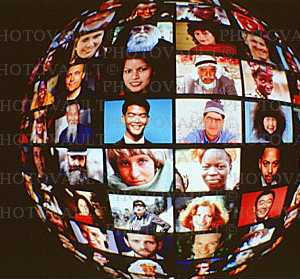|
Science
On A Soapbox If you asked the people behind you in the supermarket queue whether they trusted scientists, would you get a positive response? Nine in ten scientists believe that the public need to know more about the social and ethical implications of scientific research, according to a study from Britain's Wellcome Trust. However, a third of the scientists felt ill-equipped to discuss the implications of their research with other members of society. Only 16 per cent of respondents had received communications training and even fewer had been trained in dealing with the media. Professor Steven Rose of Britain's Open University has charged that commercialisation is leading to "science conducted by megaphone", with the risk that those skilled at shouting loudly will acquire the most influence. Professor Brian Wynne, a scientist turned social scientist from Lancaster University, argues that the science that confronts people in their daily lives generates real controversy and demands a more consultative approach to decisions. Professor Wynne will visit Wellington in June to talk with participants at a MoRST/Royal Society workshop on Science in Society. Wellcome Trust's Mike Dexter said that science organisations must provide scientists with encouragement, training and incentives to engage more regularly and effectively with the non-specialist public. The next generation of scientists will need to be able, as well as willing, communicators. But should communication be a one-way process? The UK House of Lords (an institution not immediately thought of as being intimately connected to the rest of society) has published a well-received report on Science and Society. Lord Jenkin, who chaired the inquiry, reported a surprisingly strong resistance in scientific circles to his recommendation that the term "public understanding of science" be abandoned in favour of the more open "science and society". Lord Winston of the Lords Science Committee, favours a two-way street: "The public must feel confident in what scientists are trying to do on their behalf. All sections of society should have the chance to understand and engage with it". New Zealand still has this debate to undertake. The Royal Commission on Genetic Modification is due to publish its findings this June, and it's a fair bet that more public discussion will follow its report than preceded it. Here are some of the issues which the Royal Society sees as important in the wider debate on Science in Society:
Beginning in June, the Society will mount a major initiative to encourage an enduring two-way dialogue among scientists and stakeholder organizations. Read "Alert" for news of events in this area.:
|

